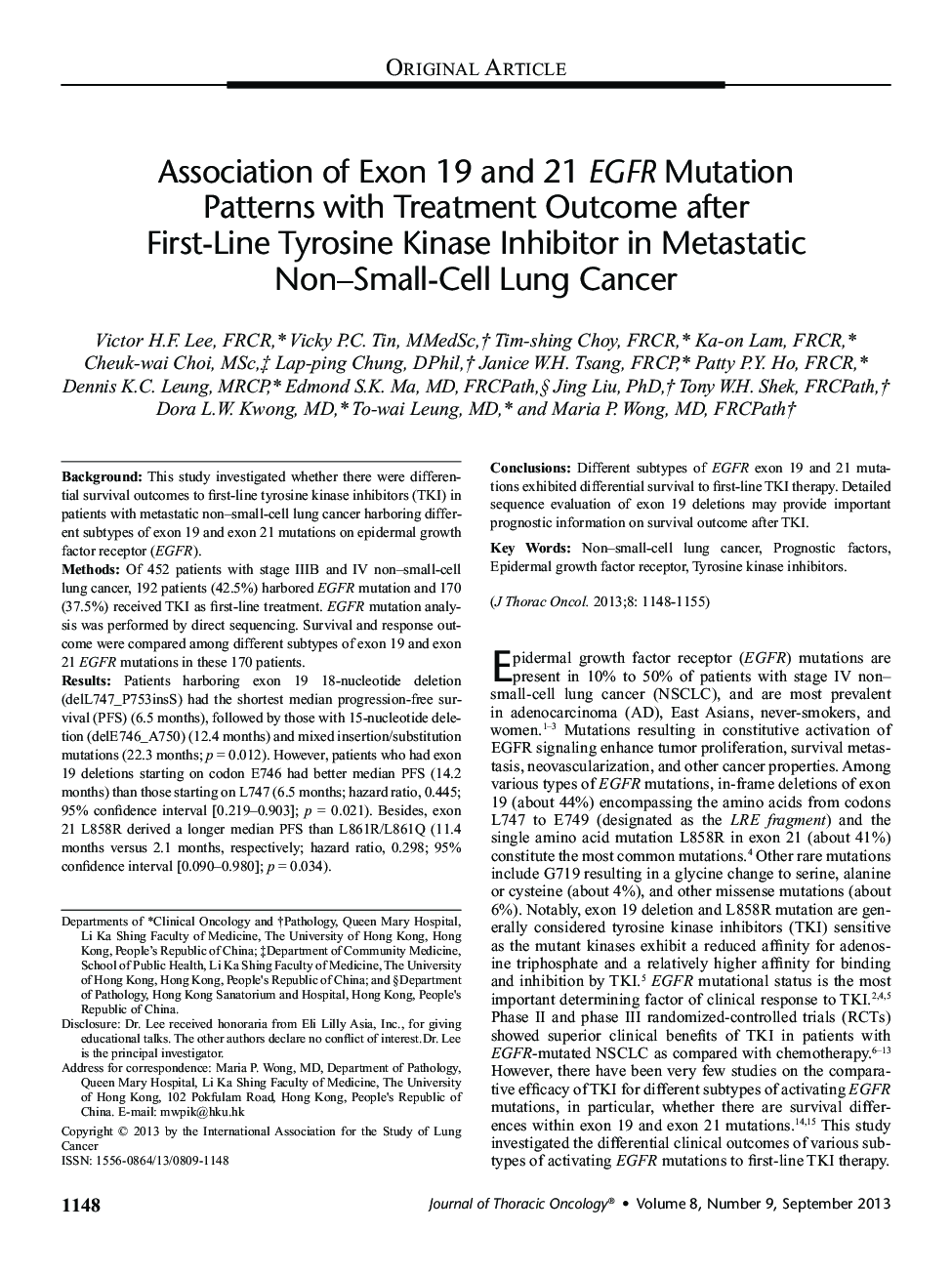| Article ID | Journal | Published Year | Pages | File Type |
|---|---|---|---|---|
| 3990018 | Journal of Thoracic Oncology | 2013 | 8 Pages |
Background:This study investigated whether there were differential survival outcomes to first-line tyrosine kinase inhibitors (TKI) in patients with metastatic non–small-cell lung cancer harboring different subtypes of exon 19 and exon 21 mutations on epidermal growth factor receptor (EGFR).Methods:Of 452 patients with stage IIIB and IV non–small-cell lung cancer, 192 patients (42.5%) harbored EGFR mutation and 170 (37.5%) received TKI as first-line treatment. EGFR mutation analysis was performed by direct sequencing. Survival and response outcome were compared among different subtypes of exon 19 and exon 21 EGFR mutations in these 170 patients.Results:Patients harboring exon 19 18-nucleotide deletion (delL747_P753insS) had the shortest median progression-free survival (PFS) (6.5 months), followed by those with 15-nucleotide deletion (delE746_A750) (12.4 months) and mixed insertion/substitution mutations (22.3 months; p = 0.012). However, patients who had exon 19 deletions starting on codon E746 had better median PFS (14.2 months) than those starting on L747 (6.5 months; hazard ratio, 0.445; 95% confidence interval [0.219–0.903]; p = 0.021). Besides, exon 21 L858R derived a longer median PFS than L861R/L861Q (11.4 months versus 2.1 months, respectively; hazard ratio, 0.298; 95% confidence interval [0.090–0.980]; p = 0.034).Conclusions:Different subtypes of EGFR exon 19 and 21 mutations exhibited differential survival to first-line TKI therapy. Detailed sequence evaluation of exon 19 deletions may provide important prognostic information on survival outcome after TKI.
